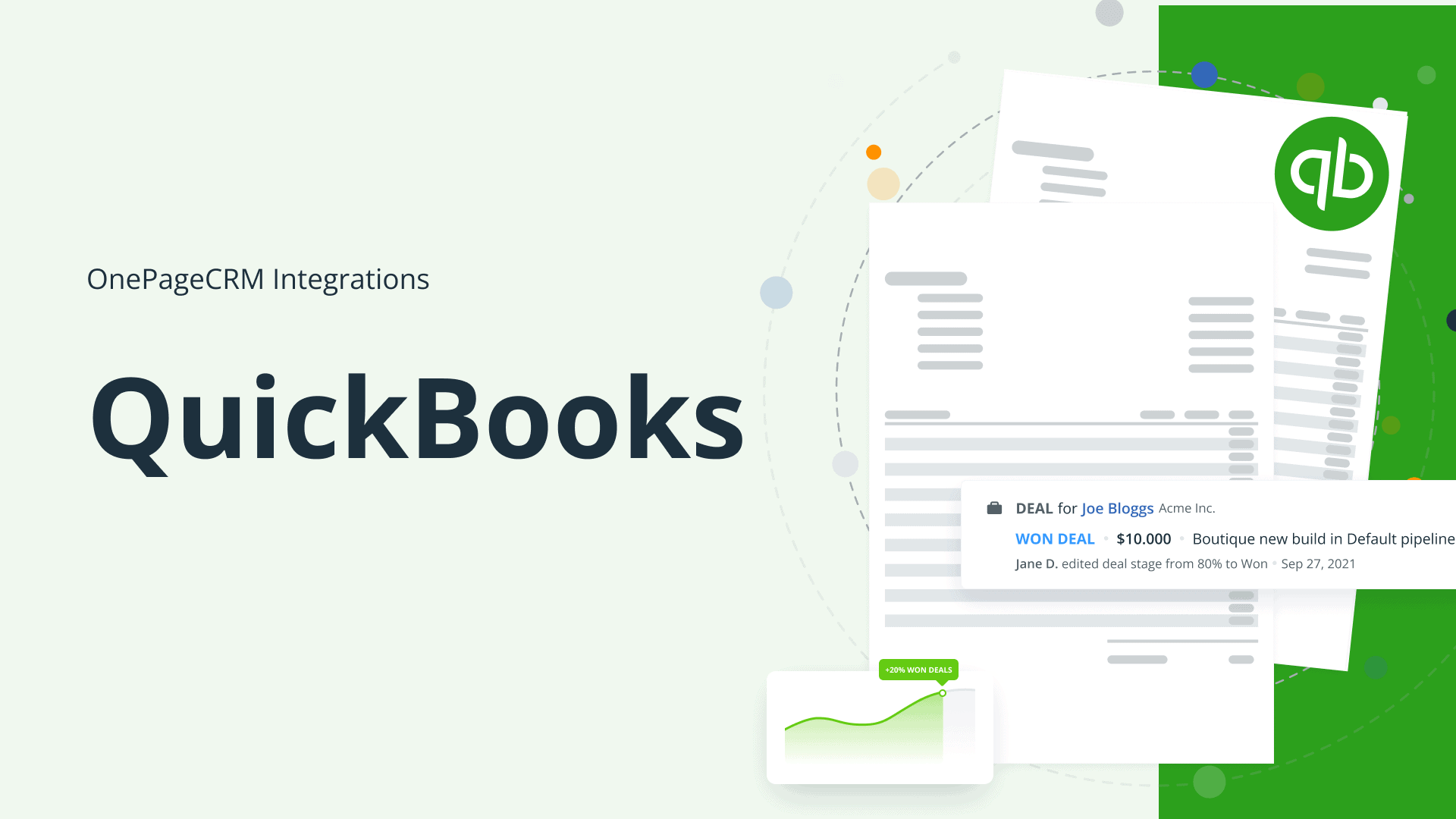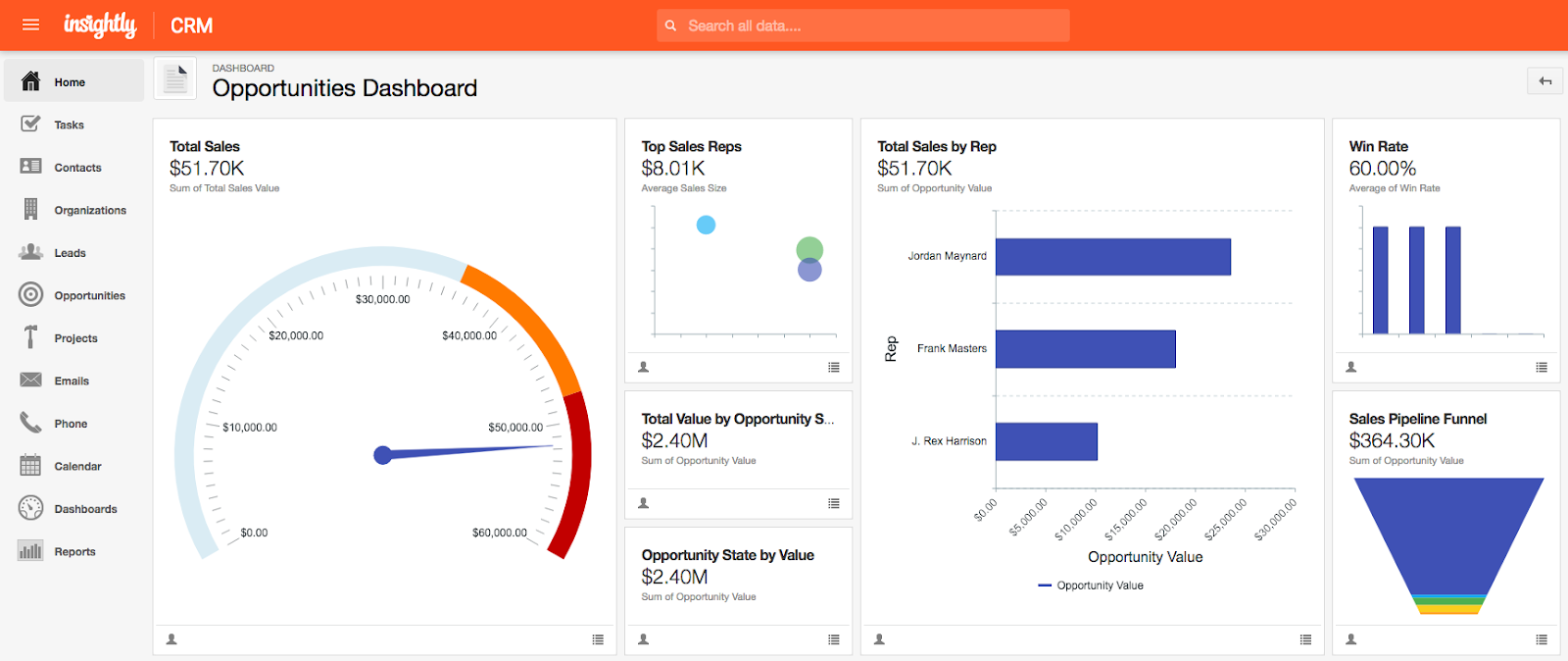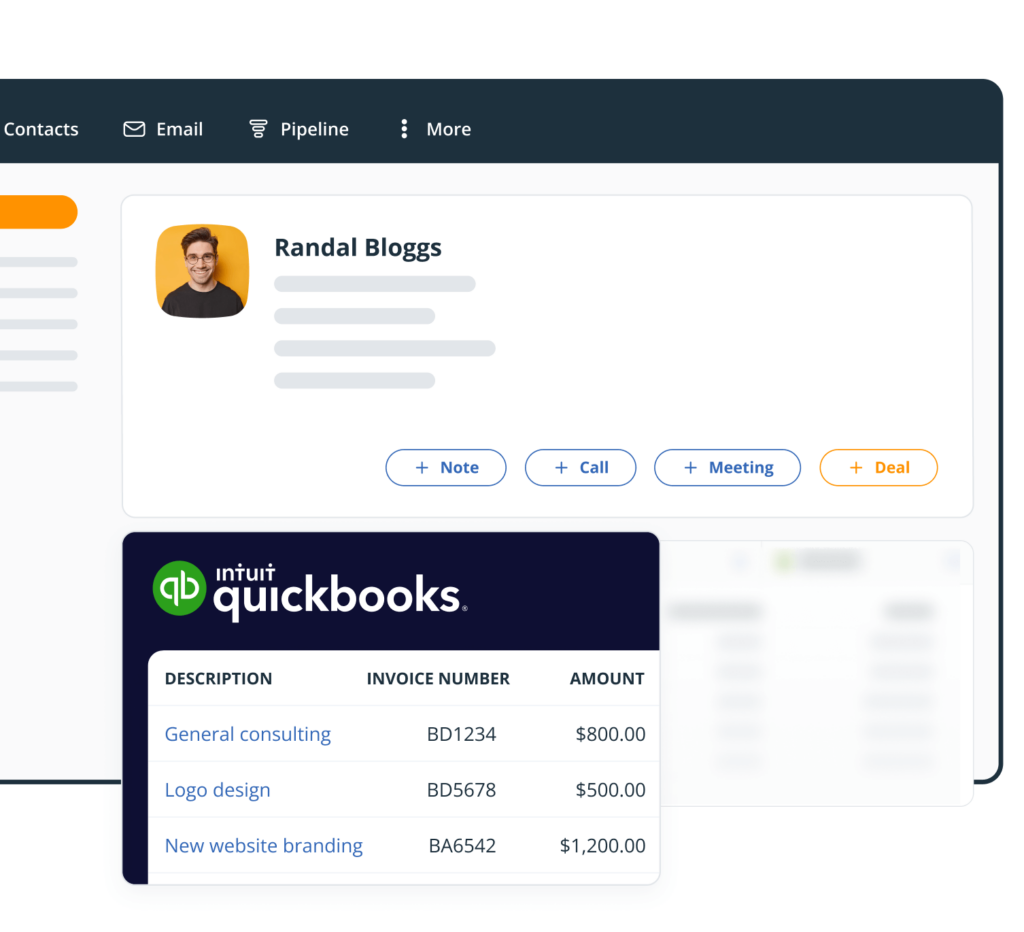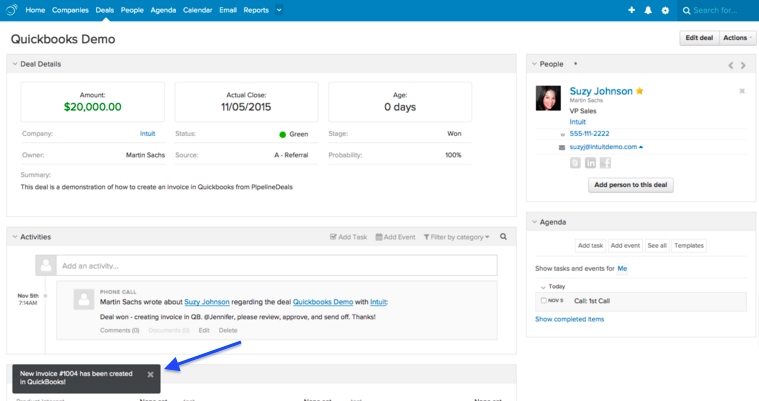QuickBooks CRM: The Ultimate Guide for Small Businesses
Keywords: QuickBooks CRM, CRM software, small business CRM, customer relationship management, sales management, marketing automation, QuickBooks CRM features, QuickBooks CRM pricing, QuickBooks CRM review, QuickBooks CRM integration
Are you a small business owner struggling to manage your customer relationships effectively? Do you find yourself spending too much time on administrative tasks instead of focusing on growing your business? If so, then you need a Customer Relationship Management (CRM) system. And QuickBooks CRM could be the perfect solution.
QuickBooks CRM is a cloud-based CRM software designed specifically for small businesses. It’s easy to use, affordable, and integrates seamlessly with other QuickBooks products. This means you can manage your finances, track your sales, and keep your customers happy all in one place. This ultimate guide will walk you through everything you need to know about QuickBooks CRM, from its core features to its pricing and integration capabilities.
Understanding Your Customer Relationships: The Core of QuickBooks CRM
Keywords: customer relationship management, customer data, customer interaction, lead management, sales pipeline
Before diving into the specifics of QuickBooks CRM, let’s understand the importance of customer relationship management (CRM). A CRM isn’t just a software; it’s a strategy. It’s about understanding your customers, their needs, and their preferences. It’s about building strong relationships that lead to repeat business and referrals. A robust CRM system helps you achieve this by centralizing all your customer data in one place, making it easily accessible to your team.
Imagine this: you’re juggling multiple spreadsheets, email inboxes, and sticky notes, trying to keep track of your customers. It’s chaotic, time-consuming, and prone to errors. A CRM like QuickBooks CRM streamlines this process. It allows you to store all your customer information – contact details, purchase history, communication logs, and more – in a secure and organized manner. This makes it easier to personalize your interactions with customers and anticipate their needs.
QuickBooks CRM helps you manage your entire sales pipeline, from lead generation to closing deals. You can track your leads, manage your opportunities, and monitor your sales progress in real-time. This gives you a clear picture of your sales performance and helps you identify areas for improvement. Effective lead management is crucial for business growth, and QuickBooks CRM provides the tools to do just that. You can easily categorize leads, assign them to specific team members, and track their progress through the sales funnel.
Key Features of QuickBooks CRM: A Deep Dive
Keywords: contact management, lead tracking, sales pipeline management, marketing automation, reporting and analytics

Now, let’s explore the core features that make QuickBooks CRM a powerful tool for small businesses.
| Feature | Description | Benefits |
|---|---|---|
| Contact Management | Organize and manage all your customer information in one central location. | Improved customer service, personalized communication, reduced administrative overhead. |
| Lead Tracking | Track leads from initial contact to closed deals, monitoring their progress through the sales pipeline. | Increased sales conversion rates, improved sales forecasting, better resource allocation. |
| Sales Pipeline Management | Visualize your sales process and manage opportunities effectively. | Enhanced sales productivity, improved sales team collaboration, better sales performance tracking. |
| Marketing Automation | Automate repetitive marketing tasks, such as email campaigns and follow-ups. | Increased efficiency, improved customer engagement, better lead nurturing. |
| Reporting & Analytics | Generate reports and analyze key metrics to gain insights into your sales and marketing performance. | Data-driven decision-making, improved sales strategies, better understanding of customer behavior. |
QuickBooks CRM also offers robust reporting and analytics capabilities. You can generate customized reports to track key metrics like sales revenue, customer acquisition cost, and customer lifetime value. This data provides valuable insights into your business performance, allowing you to make data-driven decisions and optimize your strategies. Understanding your customer behavior through detailed analytics is key to long-term success.
QuickBooks CRM Integration: Seamless Workflow
Keywords: QuickBooks integration, accounting software integration, data synchronization, third-party integrations, API integrations
One of the biggest advantages of QuickBooks CRM is its seamless integration with other QuickBooks products, particularly QuickBooks Online. This integration eliminates the need for manual data entry and ensures that your financial and customer data are always synchronized. Imagine the time saved by having your accounting and CRM data automatically updated – no more double entry or data discrepancies!
This integration extends beyond QuickBooks Online. QuickBooks CRM also offers integrations with other popular business applications through its API (Application Programming Interface). This allows you to connect your CRM to your email marketing platform, e-commerce store, and other essential tools, creating a streamlined workflow. This interconnectedness allows for a truly unified business management system.
Think about the possibilities: automatically updating customer information after a purchase, sending personalized email campaigns based on purchase history, or tracking marketing ROI directly within your CRM. These integrations are not just convenient; they are essential for maximizing efficiency and achieving business goals.
QuickBooks CRM Pricing and Plans: Finding the Right Fit
Keywords: QuickBooks CRM pricing, subscription plans, pricing tiers, cost-effectiveness, value for money
QuickBooks CRM offers different subscription plans to cater to businesses of various sizes and needs. The pricing structure is transparent and straightforward, allowing you to choose a plan that best fits your budget and requirements. The specific pricing details can be found on the QuickBooks website, but generally, you can expect a tiered system with varying features and user limits.
It’s important to carefully consider your business needs before selecting a plan. Think about the number of users who will need access to the CRM, the features you require, and your budget. QuickBooks provides detailed information on each plan, allowing you to make an informed decision. Choosing the right plan ensures you get the most value for your money and avoid paying for features you don’t need.
QuickBooks CRM Review: User Experience and Feedback
Keywords: QuickBooks CRM review, user experience, ease of use, customer support, user interface, overall satisfaction
User reviews consistently praise QuickBooks CRM for its intuitive interface and ease of use. Many users appreciate the simplicity of the system, even those with limited technical expertise. The clean design and straightforward navigation make it easy to manage customer data and track sales. QuickBooks’ commitment to user experience is a major factor in its success.
Customer support is another area where QuickBooks receives positive feedback. The company offers various support channels, including phone, email, and online resources. This ensures users can quickly get assistance when needed, further enhancing the overall user experience. A responsive and helpful support team is crucial for a smooth transition and ongoing success with the software.
Conclusion: Is QuickBooks CRM Right for You?
Keywords: final thoughts, QuickBooks CRM benefits, small business solutions, CRM software selection, decision-making
QuickBooks CRM offers a powerful and user-friendly solution for small businesses seeking to improve their customer relationship management. Its seamless integration with other QuickBooks products, intuitive interface, and robust features make it a compelling option. However, the best CRM for your business depends on your specific needs and budget.
Before making a decision, consider your current CRM processes, your team’s technical skills, and your budget. Compare QuickBooks CRM to other CRM options on the market, taking into account factors like pricing, features, and integrations. Choosing the right CRM is a crucial step in optimizing your business operations and achieving sustainable growth.
Frequently Asked Questions (FAQ)
Keywords: QuickBooks CRM FAQs, common questions, troubleshooting, customer support, technical issues
- Q: How much does QuickBooks CRM cost?
A: The pricing for QuickBooks CRM varies depending on the plan you choose. Visit the QuickBooks website for the most up-to-date pricing information.
- Q: Does QuickBooks CRM integrate with other software?
A: Yes, QuickBooks CRM integrates seamlessly with other QuickBooks products and offers API integrations with many other popular business applications.
- Q: Is QuickBooks CRM easy to use?
A: Yes, QuickBooks CRM is designed with user-friendliness in mind. Its intuitive interface and straightforward navigation make it easy for users of all technical skill levels to manage their customer relationships.
- Q: What kind of customer support does QuickBooks offer?
A: QuickBooks offers various support channels, including phone, email, and online resources, to assist users with any questions or technical issues.
- Q: Can I try QuickBooks CRM before committing to a subscription?
A: QuickBooks often offers free trials or demos, allowing you to test the software before subscribing. Check their website for current offers.
This article provides a comprehensive overview of QuickBooks CRM. Remember to always check the official QuickBooks website for the most current information on features, pricing, and availability. Good luck in your CRM journey!


